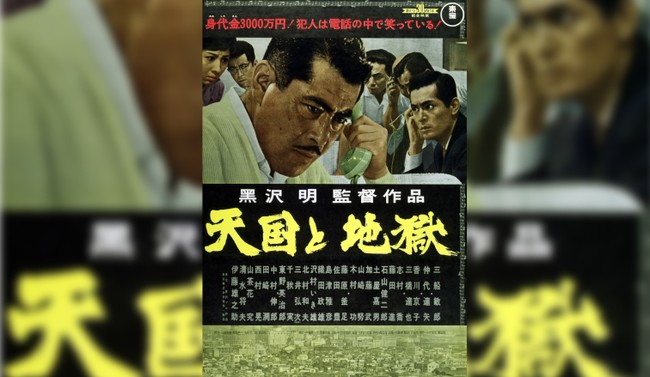
One of my favorite movies is Akira Kurosawa’s 1963 classic “High and Low.” It’s not a samurai film; it’s a contemporary story based on an Ed McBain novel. It neatly divides into halves: one half a kidnapping drama and the other half a police procedural about finding the kidnapper.
In it, shoe executive Kingo Gondo has mortgaged himself and his family to the hilt to buy a controlling stake in the company where he works. That night, he receives a disturbing phone call: a man claims to have kidnapped Gondo’s son, and the ransom is almost as much as what he needs to buy his shares in the company.
Another call follows, in which the kidnapper realizes that he grabbed the wrong kid. Instead, he has kidnapped Gondo’s chauffeur’s son, but the ransom demand remains. This sets up a dilemma for the executive: does he pay the ransom and ruin his fortune or does he let the child die?
Related: Sunday Thoughts: The Weight of Our Sin
Spoiler alert: Gondo does pay the ransom — but you still need to watch the movie. I’ve used the first half of “High and Low” as a metaphor for the fact that Jesus paid the price for our sins on the cross.
The Baker Encyclopedia of the Bible explains the New Testament’s use of the word “ransom”:
The term basically means “to loose” or “to set free,” and refers to releasing, redeeming, or liberating on payment of the ransom price, to redemption, deliverance, or liberation, and to the one who does these things. The translation “ransom” is restricted to approximately eight instances where there is a clear reference to the payment of some sort of price.
Of course, the most obvious reference to the concept of ransom is when Jesus said, “whoever would be great among you must be your servant, and whoever would be first among you must be your slave, even as the Son of Man came not to be served but to serve, and to give his life as a ransom for many” (Matthew 10:27b-28, ESV).
The Apostle Peter wrote to his readers to remind them (and us) that “you were ransomed from the futile ways inherited from your forefathers, not with perishable things such as silver or gold, but with the precious blood of Christ, like that of a lamb without blemish or spot” (1 Peter 1:18-19, ESV).
And the Apostle Paul wrote to his charge, Timothy, “For there is one God, and there is one mediator between God and men, the man Christ Jesus, who gave himself as a ransom for all, which is the testimony given at the proper time” (1 Timothy 2:5-6, ESV).
The Baker Encyclopedia of the Bible adds:
The grandest display of love is revealed in the fact that “Jesus Christ laid down his life for us”; that is why “we ought to lay down our lives for our brothers” (1 Jn 3:16; cf. Jn 10:14–18; 15:13; Heb 10:3–18). In heaven the redeemed sing the new song to the one who “was slain and by thy blood didst ransom men for God” (Rv 5:9; cf. 14:3, 4).
In a 1995 sermon, John Piper preached:
Now why is his death called a ransom? “The Son of Man came to give his life a ransom for many.” Ransom is a good translation. The Greek word here (lutron) meant just that—a payment to release someone from some kind of bondage: prisoners of war, slavery, debt. So the implication is that Jesus sees his death as a ransom to release many from bondage. He is paying what they cannot pay so that they may go free. He is substituting himself for them. And at the cost of his life, they get freedom.
So this ransom is describing a substitution. Jesus in the place of the many.
Jesus paid the debt of our sins that was far too insurmountable for us to pay. Let that lead you to bring Him glory and worship Him today.

